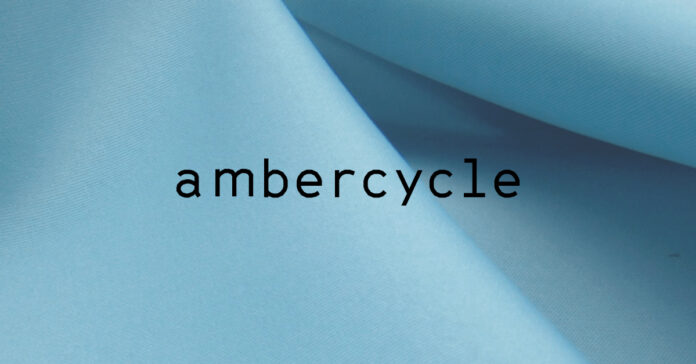Alumni Akshay Sethi and Moby Ahmed co-founded a textile recycling company, Ambercycle, which recently made deals with major fashion labels
By KAYA DO-KHANH — campus@theaggie.org
Akshay Sethi and Moby Ahmed were seniors at UC Davis in 2015 when they came up with the idea for a textile recycling company. In 2023, they have since made deals with major fashion labels.
The roommates both earned a bachelor’s degree during their time at UC Davis, Sethi in biochemistry and molecular biology and Ahmed in genetics and genomics. According to the pair, they were thinking about a lot of different things as their graduation day approached when they landed on the topic of plastic pollution.
They noticed that plastic pollution was an issue that was not being actively addressed and questioned the recycling process as they wondered if putting plastic into blue bins could in turn make it come back as a new material. They thought that there might be something interesting about developing a new way to recycle things.
Upon graduation, they co-founded a startup company, Ambercycle, which focuses on decarbonizing fashion through regenerative material. Through molecular regeneration, their technology takes end-of-life textiles and converts them into new materials for brands and manufacturers.
“The goal has been exactly the same since day one: how do we create a system of producing and regenerating clothing that makes more intuitive sense?” Ahmed said. “At UCD, we learned that water gets regenerated in nature in the water cycle [and] that nutrients flow circularly in the nutrient cycle — the materials in our clothes should be able to do the same.”
Their recycling process creates the new fabric, cycora®, which is high-quality regenerated polyester with the same strength as virgin polyester but with less than half of the carbon dioxide emissions. The Ambercycle website states that the industry-wide adoption of their technology is predicted to offset more than 15 percent of fashion’s overall global emissions.
“I think we’re solving two problems; number one, the waste problem, there’s a lot of garments that go to landfill today that we’re going to be able to redirect away from landfills, and number two, the products that we make have much lower CO2 footprints,” Sethi said. “The decarbonized yarns that come out of our process are helping a lot of brands get to really advanced climate targets. I think we’re going to have a very foundational effect on the fashion industry overtime.”
In Oct. 2023, Inditex, a fashion distribution group which owns Zara, Pull & Bear and Bershka, signed a three-year agreement with Ambercycle to buy textile to textile cycora® for over 70 million euros. Additionally, as part of the deal, Zara Athleticz launched its first capsule collection in collaboration with the startup, which consisted of pieces made up of 50 percent cycora® content.
In Nov. 2023, Ambercycle partnered with GANNI, the Danish affordable luxury brand, to support their Fabrics of the Future initiative, which includes GANNI’s carbon reduction goals and approach to responsible fashion.
With both of the recent projects, Sethi said that he was surprised by how different the audiences were for both brands. The Zara partnership gave them a lot of traction in terms of business press with many investors reaching out, and with the GANNI launch, there were more celebrities and designers that reached out.
Ahmed said that when scaling up new materials there is always a cost curve: as the scale goes up the cost comes down. Overall, the regenerative material does not increase the price of a clothing garment by a significant amount.
“When purchasing clothing itself the difference is quite small, as the portion of the end garment cost that can be attributed to the raw material is low, relative to the total embodied cost of labor, transportation and retail,” Ahmed said.
Sethi said that the university was very supportive as they received a lot of mentorship when forming the startup. On campus, it was easy to find technical resources as they walked into the Genome Center with their idea and were provided with analytical equipment.
“I think the best part about UC Davis is that a lot of people are very accessible, you could walk into any professor’s office or send an email […] almost everyone was down to talk,” Sethi said.
They worked in a lab on campus with UC Davis Biomedical Engineering Professor Marc Facciotti who was very encouraging to them.
“It was a pleasure mentoring and working with the Ambercycle team way back in the day,” Facciotti said. “I was at the time, and remain, tremendously impressed by their ability to identify and focus their attention and energies on key problems. It’s been a tremendous pleasure to watch them apply themselves and to grow and evolve their initial idea so successfully.”
Ambercycle has come a long way since the idea of it first started out at UC Davis, from its cycora® material being featured at New York Fashion Week in the Vogue fashion fund finalist Kozaburo’s collection this fall to partnerships with major fashion companies such as Zara and GANNI. The startup has many other upcoming projects in the future.
The name for the company came about when Sethi and Ahmed were up talking late one night. They based it on the process involved in the creation of amber.
“Trees produce sap, and sap is a dirty, sticky material that no one likes,” Sethi said. “But if you do something to it, if you apply heat and pressure to it, it turns into amber, which is very valuable in the same way plastic pollution is really dirty, disgusting […] and if you could do something to it, then maybe you could turn it into something valuable. That was the amber concept and Ambercycle seemed right.”
Written by: Kaya Do-Khanh — campus@theaggie.org











